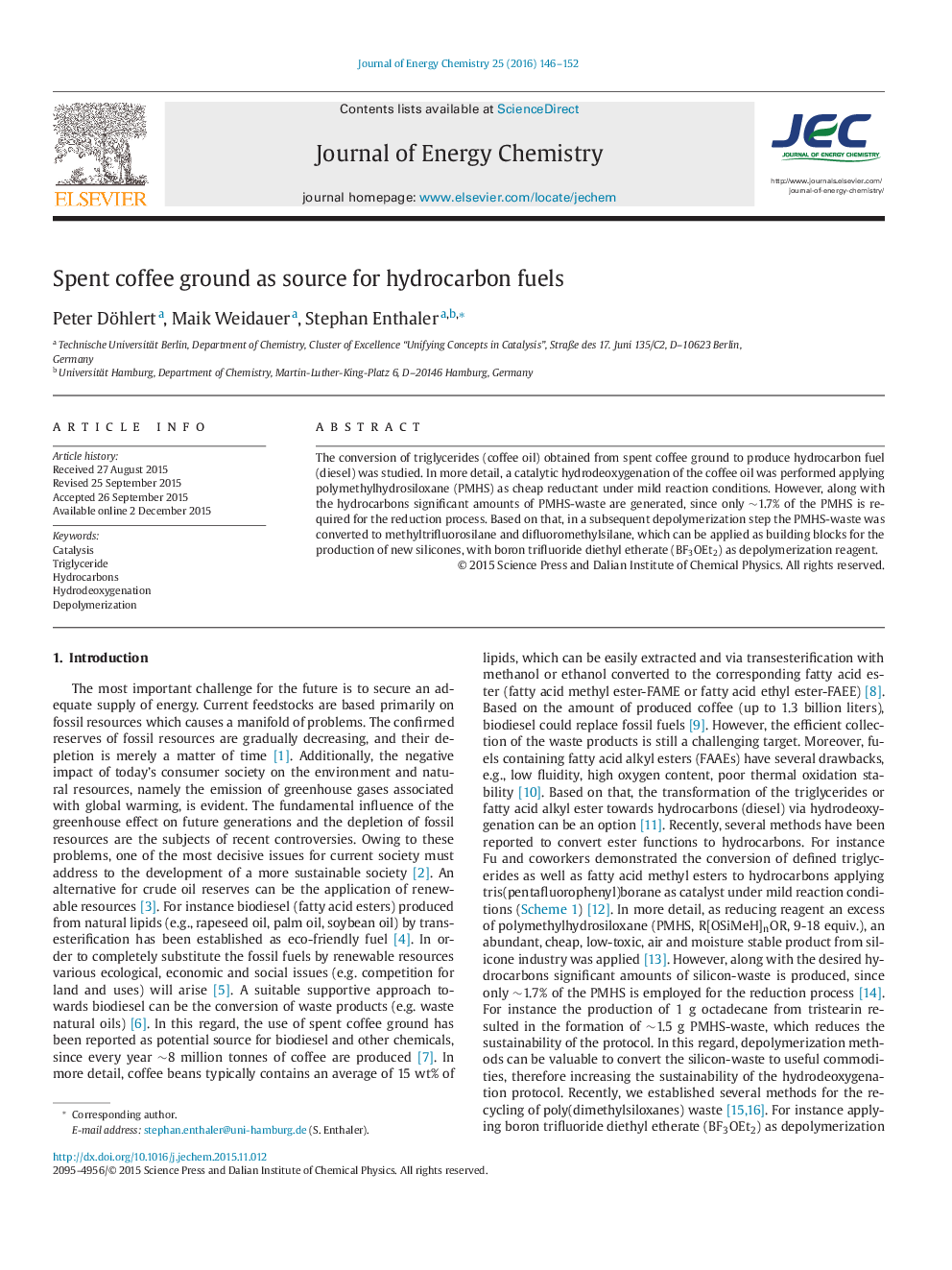| Article ID | Journal | Published Year | Pages | File Type |
|---|---|---|---|---|
| 63766 | Journal of Energy Chemistry | 2016 | 7 Pages |
The conversion of triglycerides (coffee oil) obtained from spent coffee ground to produce hydrocarbon fuel (diesel) was studied. In more detail, a catalytic hydrodeoxygenation of the coffee oil was performed applying polymethylhydrosiloxane (PMHS) as cheap reductant under mild reaction conditions. However, along with the hydrocarbons significant amounts of PMHS-waste are generated, since only ∼1.7% of the PMHS is required for the reduction process. Based on that, in a subsequent depolymerization step the PMHS-waste was converted to methyltrifluorosilane and difluoromethylsilane, which can be applied as building blocks for the production of new silicones, with boron trifluoride diethyl etherate (BF3OEt2) as depolymerization reagent.
Graphical abstract Figure optionsDownload full-size imageDownload as PowerPoint slide
